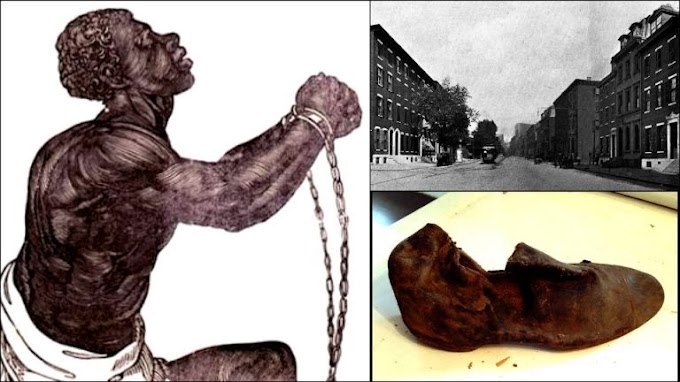Chief Obafemi Awolowo, the Obong Ipkan Isong of Ibibio Land, belonged to that rare and exclusive club of people who excel in everything they do. Excellence was his creed and self-discipline was his principle. If there is a saying that summarises Awolowo’s life, it is: He adorns not, what he touches not. Indeed and in truth, Awolowo adorned and improved everything he touched.
His sterling achievements as a politician, an administrator and statesman continue to be the reference point in political leadership in Nigeria. In accepting his resignation from the Federal Executive Council in 1971, General Yakubu Gowon had this to say about Obafemi Awolowo:
“Your outstanding performance as this government’s commissioner for finance during one of the most critical and turbulent periods of our history will always be remembered. You demonstrated, consistently, great courage, forthrightness, leadership, and a spirit of understanding which helped us to get out of our financial disaster.”
As a journalist and publisher, Obafemi Awolowo also left his imprint of excellence. His Nigerian Tribune is the oldest privately owned newspaper title in Nigeria today. First published in November 1949, Nigerian Tribune has continued to wax stronger more than 30 years after the transition of its founder.
I recall that we learnt to read Yoruba by reading Irohin Yoruba also published under Tribune titles. We also read Gbohungbohun published by Sketch Press. Later, MKO Abiola’s Concord began to publish Isokan. Those were the days when it was not a ‘criminal offence’ for children to speak their mother tongue. Nowadays, my generation that grew up speaking Yoruba, Igbo and Hausa is happy to declare, “My children can’t speak Yoruba!” Omo to so ile nu, o so apo iya ko!
However, the aspect of Chief Awolowo’s life that holds a special fascination for me is his calling as a legal practitioner. This is only natural; having regard to the fact that Onigegewura practices law in the daytime and writes history at night.
From the day he was enrolled on Tuesday, December 24, 1946, Chief Obafemi Awolowo had left no one in doubt that he was destined for the peak of the legal profession. Unlike nowadays when lawyers are called to the Bar in thousands, in Awolowo’s time, lawyers were admitted in trickles. In 1946 when Awolowo was called, only seven (7) legal practitioners were enrolled.
First to be called that year was John Adejumo Kester who was called in January and who later became my Lord Hon. Justice Kester, the President of the Court of Appeal of Western Nigerian in 1967. Others were Chuba Ikpeazu who rose to become my Lord Hon. Justice Ikpeazu, Judge of the High Court of Lagos in 1964; Funso Blaize, Edward Randolph, Akitoye Tejuoso (Lisa of Egbaland and Baba Oba of Oke-Ona) and Charles Egerton Shyngle. In the case of Shyngle, he had earlier been enrolled in 1925. His name was however struck off the rolls in 1934 before he was reinstated in 1946.
Awolowo began his legal practice in Ibadan. He quickly carved a niche for himself as a very competent legal practitioner. Awolowo’s clients found in him a very ethical professional whose word was his bond. According to Hon. Femi Kehinde: “He (Awolowo) had a very lucrative practice between 1947 and 1951.” Of his practice, Obafemi Awolowo said: "I had, among others, a fat Retainer from the United Africa Company Limited."
When Awolowo was preparing to go into politics, he realized that he would not be able to devote a hundred percent of his attention to the case and cause of his many clients. He therefore decided to form a partnership with Chief Abiodun Akerele, the Balogun of Oyo, who was called to the Bar on September 11, 1948. Chief Awolowo was to be a sleeping partner in the firm of Awolowo & Akerele. The partnership was however short-lived and was eventually dissolved for reasons which need not concern us here.
That’s how Law lost Chief Obafemi Awolowo to Politics and Government, at least for the time being. As Leader of Government Business, Western Region from 1952, and first premier of the region from 1954, Awolowo’s primary occupation was governance. As his wont, he also distinguished himself as a first class administrator.
It was not until 1971 that Chief Awolowo found himself back in full time legal practice. In his letter to General Yakubu Gowon resigning as the Vice-Chairman of the Federal Executive Council and Federal Commissioner for Finance, Awolowo informed the Head of State of his intention to go back to the profession of law and “to write if my professional engagements permit, three books which have always been very much on my mind.”
Immediately after his resignation took effect on July 1, 1971, Chief Awolowo resuscitated his chambers. It was as if he had never taken a break from legal practice. Within months he became one of the most regular faces in the courtroom. According to a learned mentor of mine who was then a young lawyer, it was always a joy to behold Chief Obafemi Awolowo in court marshaling arguments with the dexterity of a skillful advocate.
Little wonder, my Lords of the Supreme Court before whom Chief Awolowo appeared, were consistently of the view that Awolowo’s briefs of arguments were always “well-thought out and well reasoned…”
One of the first cases in which Chief Awolowo appeared as a counsel on his return to active legal practice is the popular case of Idundun v. Okumagba. It is doubtful if there is a lawyer in Nigeria who did not come across the case in Land Law. It is the case where the Supreme Court laid down the five methods of establishing title to land. You remember? Even my friend, Rasaq Ayinde – a surveyor – knew the case.
Another landmark case in which Chief Obafemi Awolowo appeared is the case of Odeneye v. Alakata, a case involving title to a piece of land purchased from Oloto Chieftaincy family which was alleged to have been sold to two different buyers. Chief Obafemi Awolowo appeared for the appellant while Mr. G. O. K. Ajayi appeared for the respondent.
In that case the issue before the Supreme Court was whether it was necessary for a Registrar of Titles to indicate whether an extension of time within which to apply for title to be registered is granted by the High Court Registrar. In other words, what is the effect of proceedings before a Registrar of Titles for an application to register title brought out of time.
Chief Awolowo, the Odole of Ile-Ife, through his forensic advocacy, succeeded in persuading the Supreme Court to hold that until an order extending time is made under section 5 of the Registration of Titles Act, proceeding of title could not be initiated.
Chief Awolowo’s practice was not limited to civil litigation. He was also at home with criminal proceedings. In the case of Gregory Godwin Daboh & Another v. The State, a case involving the interpretation of sections 419 and 516 of the Criminal Code, Awolowo appeared for the first appellant. He appeared with Sir Olaniwun Ajayi, Messrs Banjo Solaru and Dele Awoniyi, as well as his daughter, Mrs Ayo Soyode (who was called to the Bar in 1974).
In that case, Obafemi Awolowo displayed an uncommon mastery of classical advocacy. At the end of his submissions, which were both ingenious and creative, the Supreme Court admitted that: “these [Chief Awolowo’s arguments] are important submissions. They are impressive and require careful examination and consideration.”
The issue in that case is whether proof of conspiracy could be deduced from criminal acts of parties performed in common. The appellants, Godwin Daboh and Joseph Mordi, had been convicted by the High Court of conspiring to induce the Registrar of Insurance under false pretences to deliver Certificate of Insurance to Daboh’s company by falsely pretending that the company had credit balance in its account with the Bank of the North.
After listening to submissions of counsel, the Supreme Court held that proof of conspiracy is generally a matter of inference deduced from certain criminal acts of parties concerned, done in pursuance of an apparent criminal purpose in common between the conspirators.
Another interesting case involving Obafemi Awolowo, the Odofin of Owo, is the case of Tijani Bambe v. Yusufu Aderinola. In that case, whilst Chief Awolowo appeared for the respondents, his former Attorney General in the Western Region, the indomitable Chief FRA Williams appeared for the appellants. It was in that case the Supreme Court explained the meaning of the word ‘demurrer’ as having its origin in the Latin word ‘demorari’ meaning to wait.
A common thread that runs through all the cases in which Chief Obafemi Awolowo appeared as counsel is that of diligence and discipline. He was committed to the cause of his clients as well as the cause of justice. His arguments were always “logical” and “neat.”
In recognition of his industry and competence, Awolowo was conferred with the prestigious rank of Senior Advocate of Nigeria in 1978. He was the 4th Nigerian to be so honoured. Chief FRA Williams and Dr. Nabo Graham-Douglas were the first and second persons to be given the rank in 1975. Dr. Augustine Nnamani was the third.
A word about Dr. Nnamani. His Lordship earned distinction as being one of the few lawyers to get to the peak of the legal profession as a Justice of the Supreme Court, as an Attorney General of the Federation, as a Senior Advocate of Nigeria and as a holder of Ph.D in Law.
The foregoing is not and does not represent an exhaustive review of Obafemi Awolowo’s cases. It is but to give the present generation an idea of the ideal which Chief Awolowo represented and continues to represent. It is to remind our generation that with diligence, industry, hard work, concern for humanity, and faith in God, we can all get to the peak of our profession.
May the soul of Apesin of Osogbo, the Ajagunla of Ado-Ekiti, the Asiwaju of Yoruba, and the Grand Commander of the Federal Republic of Nigeria continue to rest in perfect peace.
Whatever your choice of profession is, please always remember these immortal words of the Sage: “Those who desire to reach, and keep their places at the top in any calling must be prepared to do it the hard way.”
Onigegewura is grateful for your time. See you at the top! And have a fantastic week!
Source:
Olanrewaju Onigegewura








0 Comments